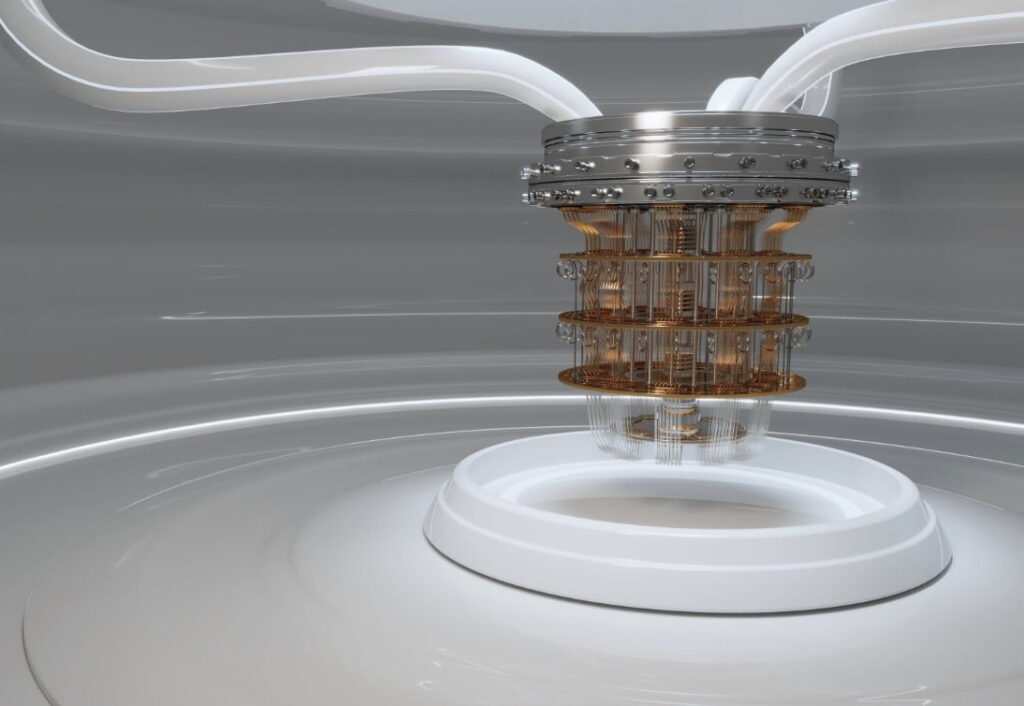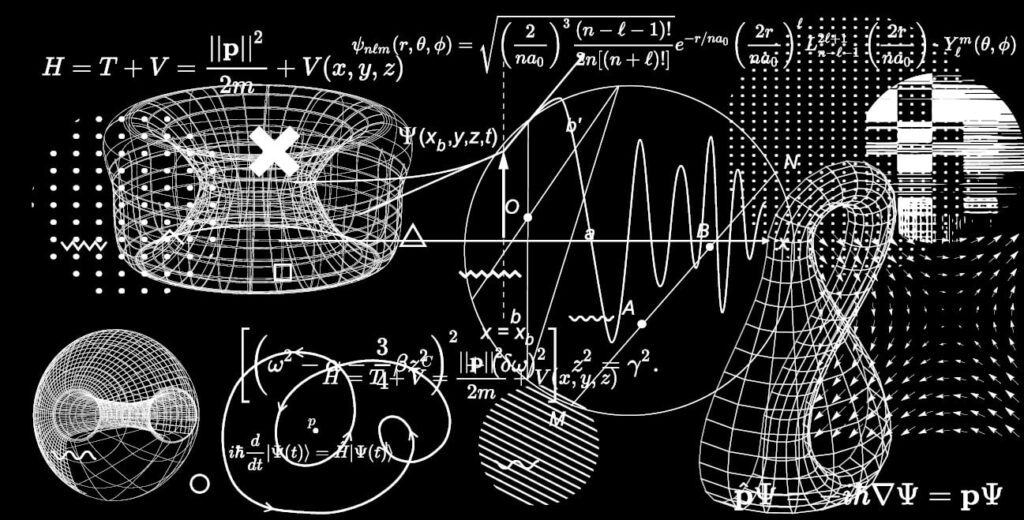In the world of technology, quantum computing is a relatively new and exciting field that has the potential to revolutionize the way we process information. However, before diving into the specifics of quantum computing, it is important to understand some fundamental concepts that serve as the building blocks for this technology. Sit back and find out what is quantum computing in our October 2023 update.
One such concept is quantum mechanics, which deals with the motion and forces of incredibly small particles such as atoms. Atoms are so small that measuring them requires 100 million of them just to make a one centimeter line. To help visualize just how small they are, there is a video available that takes a closer look at atoms. By understanding these basic concepts, one can begin to grasp the incredible potential of quantum computing.
There is a great video that takes a closer look at an Atom to demonstrate how small they actually are.
Quantum Mechanics
Quantum Mechanics is a mathematical framework used to describe the behavior of small particles such as atoms. It is also the foundation of quantum physics, which is a branch of physics that studies the behavior of matter and energy at the atomic and subatomic level. Under the umbrella of Quantum Mechanics, various subcategories have emerged, such as quantum technology, quantum theory, and quantum information science.
Quantum Technology is a subcategory of Quantum Mechanics that deals with the application of quantum mechanics to develop new technologies. One of the most promising areas of quantum technology is Quantum Computing, which aims to use quantum mechanics to perform computations that are beyond the capabilities of classical computers.
Quantum Computing is a rapidly evolving field that has the potential to revolutionize computing and solve problems that are currently intractable. Unlike classical computers, which use bits to represent information, quantum computers use quantum bits or qubits. Qubits can exist in multiple states simultaneously, which allows quantum computers to perform certain calculations much faster than classical computers.
In summary, Quantum Mechanics is a fundamental concept in physics that describes the behavior of small particles such as atoms. Quantum Technology is a subcategory of Quantum Mechanics that deals with the application of quantum mechanics to develop new technologies, including Quantum Computing.
What is Quantum Computing
A quantum computer is a computer that uses quantum mechanics to perform calculations. Unlike traditional computers that use transistors to control the flow of electricity, quantum computers use quantum bits or qubits. Qubits can be in multiple states at the same time, allowing a quantum computer to perform many calculations simultaneously.

This means that a quantum computer can solve complex problems much faster than a traditional computer. While traditional computers can only perform one task at a time, quantum computers can perform many tasks simultaneously. This makes them ideal for solving problems that require a large amount of processing power.
Quantum computers are still in the early stages of development, but they have the potential to revolutionize many fields, including cryptography, chemistry, and finance. As demand for faster and more powerful computing systems continues to grow, quantum computing is likely to become an increasingly important area of research and investment.
Classical Mechanics
Classical Mechanics is a term used to describe the study of motion and forces in our classical world. It is a comprehensible concept, where pushing an object with a force will result in its movement, and the speed of the object will depend on its weight. Our brain is capable of computing and understanding this phenomenon.
On the other hand, the quantum world is vastly different, and our ability to comprehend its concepts is often challenging. Our brain is not wired or trained to operate in this way, which is why it is difficult to explain how a quantum computer works.
Quantum mechanics has unique characteristics that open up many possibilities. In this section, we will cover two peculiar attributes of Quantum Mechanics: Superposition and Entanglement.
Superposition – Two Places at the Same Time
In the world of Quantum Mechanics, it is possible for something to be in two positions at the same time. This is called Quantum Superposition. Scientists had to come up with a new term to describe this type of behavior. It is the term used to indicate that something is in two positions at the same time.
At the quantum scale, things act differently, in a way that is outside of our normal world and the way we think. For instance, one grain of salt contains over 1000 atoms. If we could zoom in to a grain of salt at this level, we could see the atoms moving around.
Entanglement – Two States (on/off) at the Same Time
Entanglement is another peculiar attribute of Quantum Mechanics. It is where a state can exist in two places at the same time. For example, when a change is made to one qubit, it is also made to another immediately, which speeds up the processing capability of quantum computers. A good example of entanglement that we can somewhat relate to is teleportation.

In summary, we have covered two key topics in Quantum Mechanics. Firstly, we can now see that a qubit can exist in two places at the same time. Secondly, it can also be in two different states (on/off) at the same time. These unique capabilities not seen in our classical world are key to delivering the power behind a quantum computer.
Quantum Computing
Quantum Computing is a new technology that utilizes the unique properties of qubits to process information simultaneously. Unlike traditional computers that can only do one task at a time, quantum computers can perform multiple tasks at once. The concept of quantum computing was first envisioned in the 1980s, and it wasn’t until the late 1990s that a consortium including IBM and several universities demonstrated a working quantum computer. Since the early 2000s, there has been a steady increase in quantum computing investments from government, universities, and private institutes. Quantum computing has the potential to revolutionize many industries, including finance, healthcare, and cybersecurity.
The Future of Quantum Computing
Despite the current limitations of quantum computing, experts predict that the technology will have a significant impact in the next 5 years. The biggest challenge is developing systems with a large number of stable qubits, with some estimates suggesting that a million qubits are needed to unlock the full power of quantum computers.
At present (October 2023), the latest system by IBM only has 433 qubits. However, companies such as PSI Quantum, backed by Microsoft and other leading investment funds, are making significant progress in this area each year. As these companies continue to push the boundaries of quantum computing, we can expect to see exciting new developments in the near future.
